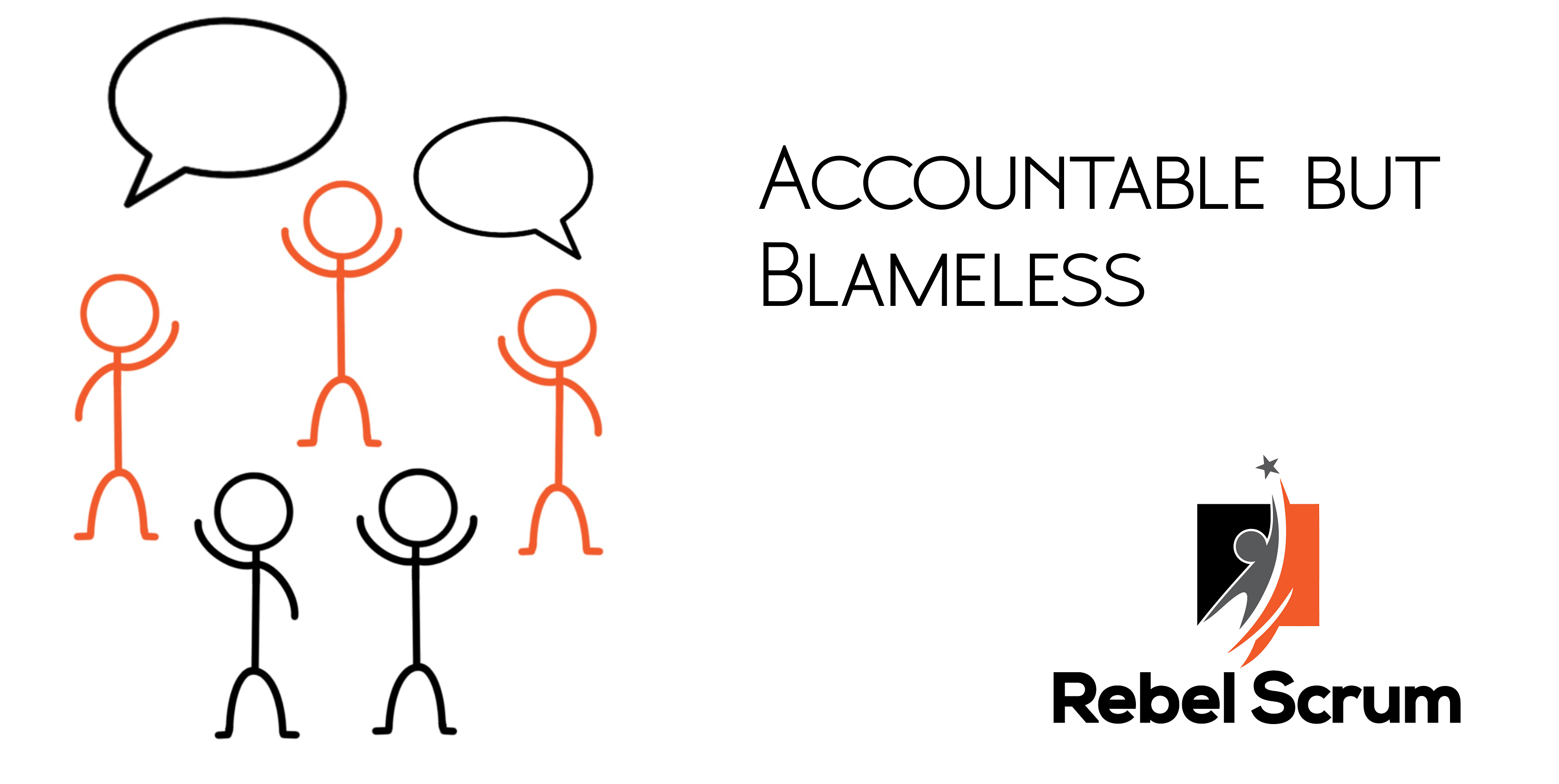I was teaching the Professional Scrum Master course last weekend and we were talking about how Scrum Masters can foster a positive Scrum Team culture. Kit Chow, a project manager at RehabPath who participated in the class, suggested, “They [the team] should hold each other accountable but blameless.”
This phrase struck me because it captures so much about positive team culture in Scrum. (I also love that we learn as much from each other in my classes as we do from the training material.)
Accountability in Scrum is essential
Scrum Team members hold each other accountable, which is critical in the complex environments for which the Scrum framework was designed.
Teams working with complexity need people willing to face and solve tough challenges. It’s not an environment suited to command-and-control management. There’s no “script” for what to do next—the team must figure it out. Rather than leaders holding team members responsible for delivering a work quota, Scrum Team members hold each other accountable for working towards team goals. But, just as Kit Chow pointed out, accountability is not about blame.
What blameless accountability looks like
When something in the Scrum Team's work goes wrong, it's an opportunity to understand the issue, learn from it, and identify the necessary changes to avoid the same outcome in the future. This inspection and adaptation is a necessary part of the empiricism that underlies successful Scrum.
Scrum Masters must encourage teams to work collaboratively to find solutions to problems, ensuring each person can add value and accountability to the effort. When a team member makes a mistake, ensure the team understands the reason behind it and the situation leading up to it. Avoid negative preconceptions and assumptions, be inclusive, and encourage open communication to determine the issue’s root cause. Bringing the team together for the discussion creates a sense of cohesion and collective responsibility—it’s not one person’s problem to fix
For example, say the team's Product Owner did not communicate essential feedback from stakeholders to the team. Holding the PO accountable means discussing the outcome of the action on the team's goals. Perhaps it involves a discussion about any factors that led to the miscommunication. Is there anything the team could put in place structurally to make critical stakeholder communication easier to convey to the team, for example?
It's also beneficial to build systems that support equity and fairness, leveraging performance tools such as quality metrics and KPIs (key performance indicators) to monitor team outcomes. When designed for balance, these objective tools help focus on non-blaming, non-punitive measurements that the team can use to reward good work or provide feedback. It’s essential to measure performance in a manner that fosters collaboration, debate, and feedback. Setting up policies and processes that emphasize continuous improvement instead of seeking blame contributes to a culture of safety where people can express vulnerability without the fear of shaming from others.
Conclusion
When Scrum Team members assign blame, they are walking down a path that stifles creativity, which is at the heart of problem-solving. The Scrum framework is set up to support creative adaptation through transparency and inspection. Spending time assigning blame diverts energy from creativity. It develops a climate where people are focused on not making mistakes rather than taking small risks to learn and achieve something valuable.
That’s why “accountable, but blameless” is my new favorite phrase, right next to “assume positive intent.” Thanks, Kit Chow!
Scrum Day Madison
The theme for Madison’s first-ever Scrum Day conference is “Scrum is a team sport.” Speakers from around the world are coming to Madison to discuss how to unlock the power of teams by supporting each of the accountabilities in Scrum.


